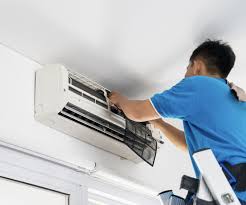If you find your actuator stopped working, there may be several reasons for it, which is not so easy for a non-specialist to find out. However, when it comes to an actuator function, there are only a handful of components which may be actually causing the problem. So, if you find your actuator fails, then here are five things you need to check at the first point.
The actuator valve
What you find out as an actuator failure may actually be a simple valve problem. The service experts say that valve failure is the basic reason for seven out of 10 actuator problems. Some of the common issues related to actuator valves ending up in system failure are:
- The valve stem getting worn out.
- Valve packing gets seized up.
- Obstruction in the valve.
- Extreme torque.
There is no point in repairing an actuator if its valve is malfunctioning. It will only cause to waste your time and money and again puts you back into the same problem. So, before tearing apart your actuator for repair, first, try to put it into a manual override to check if you find any trouble with the valve. If you find the valve functions well in the manual mode, then it may have any other problems.
Center column drive
The valve opens and closes on a stem. This is the function of the center column drive, which may sometimes break. However, as per Vooner Industrial experts’ opinion, this may happen only in very rare cases and is not usually found as the most common case in actuator failures.
Connection to valve
Another more likely to have trouble in terms of actuator failure is the connection to the valve, which is the drive nut, failing. If the drive nut is worn out, then it will not be able to move the valve stem properly. You can check it by removing the cover of the center column and inspecting it.
Contactor
Motor contactor in an actuator system is the internal electrical device, which prompts the actuator valve to open and close when given the appropriate signal. If the contactor fails, then the actuator may not function. There is fuse protection for the contactor, so if you find it failing, first check whether the fuse is in proper shape.
Motor
The motor is the key component of an electric actuator, which offers the torque to open and close the valve. In the case of motor failure, the valve is stuck without any action. In such a case, make sure that the duty cycle of the motor and the insulation class is good enough for its proper functioning.
When it comes to an actuator failure and repair, every circumstance is important. If you can lock out an actuator electrically by ensuring there is no current flowing to it, then it will be possible to conduct the primary checks for the above symptoms on site itself. If the need is just for replacement of the contactor or the motor with a new one, then a skilled technician may be able to perform the replacement of such parts there itself without the need to shut down the whole line.
